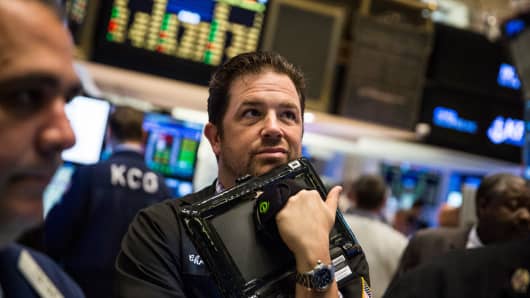If the Fed was going to raise rates, it should have done so in the past few years when things were fairly stable on a global basis. But now, it really can't raise rates in the context of the global environment and its potential impact on the U.S. and other economies around the world.
Read More Stock market calls the Fed's bluff
The overinflated commodity bubble, juiced by the Fed and other central bank intervention worldwide, has popped perhaps before anticipated. With low oil and other commodity prices, inflation (taken as a whole) is not only no longer a concern, but deflation has become the word du jour. The emerging markets, including the all-important "BRIC" countries (Brazil, Russia, India and China), are struggling from the effects of years of currency and commodity manipulations. The worst of these now appears to be China. It was a stalwart while the rest of the world dealt with the last major crisis, but it is now showing signs of a major slowdown that could impact Europe and the U.S.
I have, for the last year, been in the camp that the Fed would not raise rates this year. History shows that the Fed is always a laggard and would rather be late to the party than risk being early. With a dovish head in Janet Yellen, that seems to make a strong case for history to repeat.
Moreover, looking at the worldwide landscape, which may see further currency devaluations against the U.S. dollar impacting exports, the slowdown of a major trading partner in China and the impact of lower oil prices on the energy industry in the U.S. — the one bright spot that has boosted jobs over the last few years — it seems as clear as day that the Fed cannot raise interest rates any time soon.
Read More The Fed should still hike rates in September
Given that, the Fed should come clean and say that it is postponing any rate hike into at least the first or second quarter of 2016.
New York Fed President William Dudley did say in today's press conference that a September rate hike was less likely, but why the need to play cat and mouse here? Give some certainty back to the market by saying that rate hikes are off the table for the time being so that we can sort through the other issues, including the challenges likely coming from China. Not to mention that a stock market that resembles an amusement park roller coaster isn't exactly the boost to consumer confidence that will push the consumer to ramp up personal spending.
The Fed has created this monster of a market. The least that it can do at this time is give it a bit of certainty, at least in the short-run. It's not an ideal situation, but it is the best course of action.
Commentary by Carol Roth, a "recovering" investment banker (corporate finance), entrepreneur/small-business owner, investor and author of "The Entrepreneur Equation." Follow her on Twitter@CarolJSRoth.


